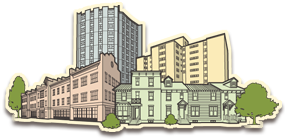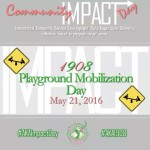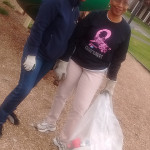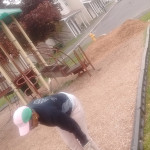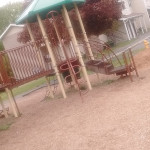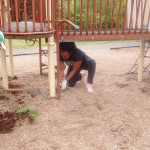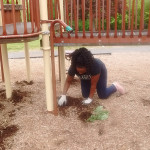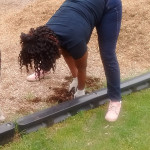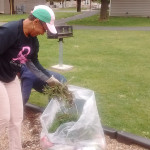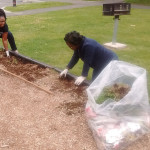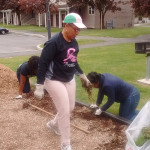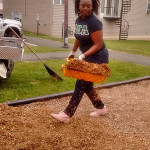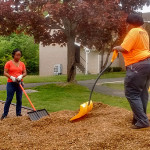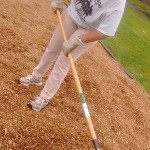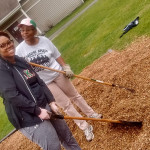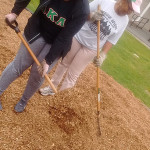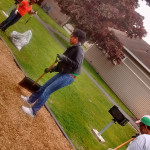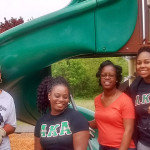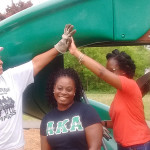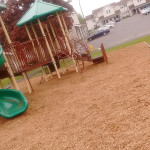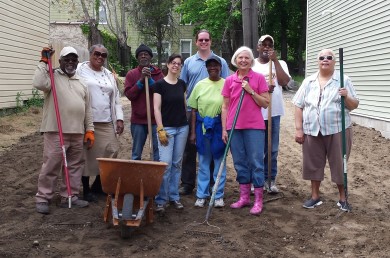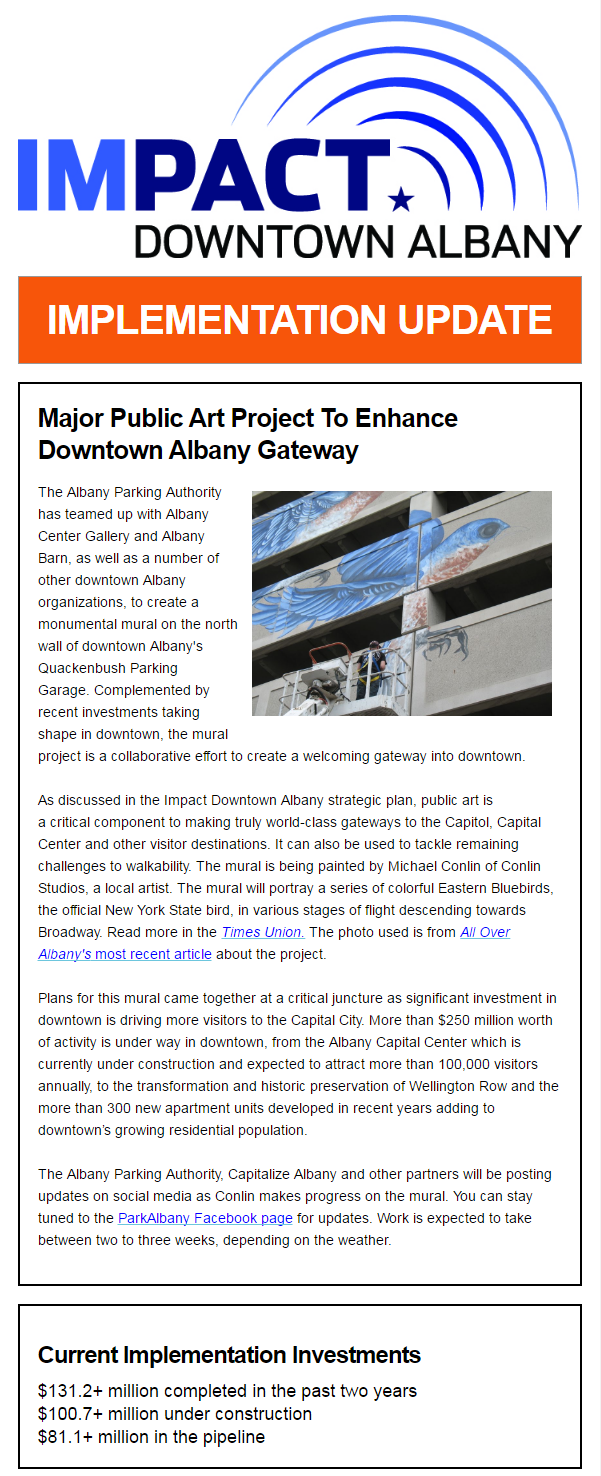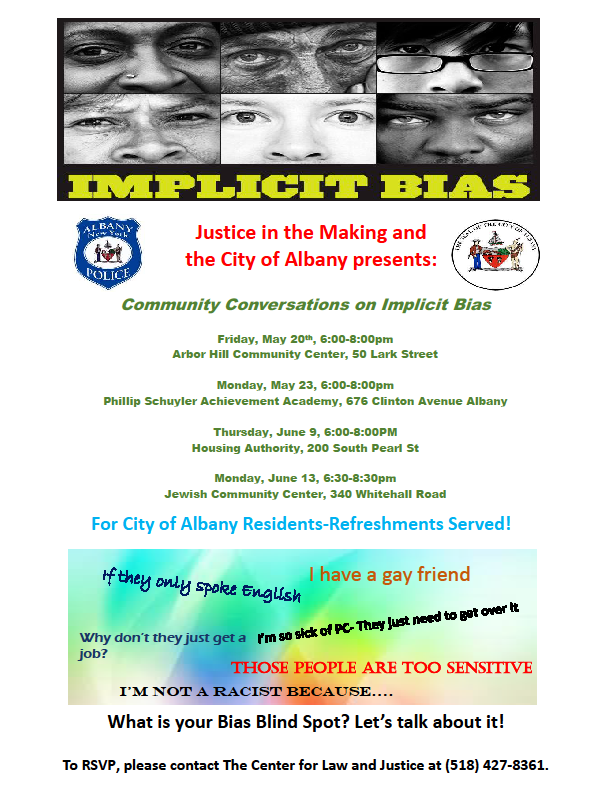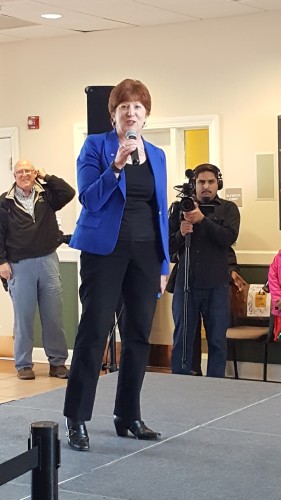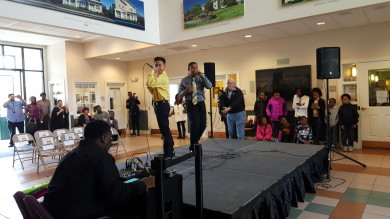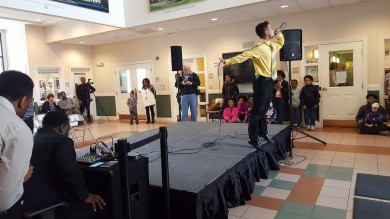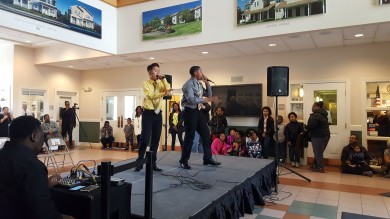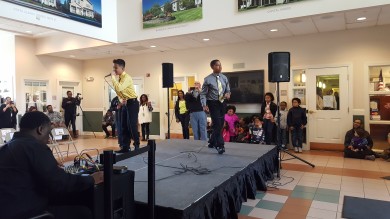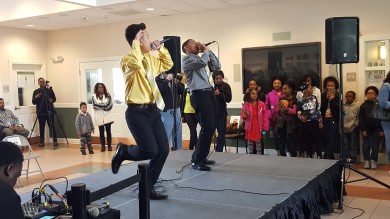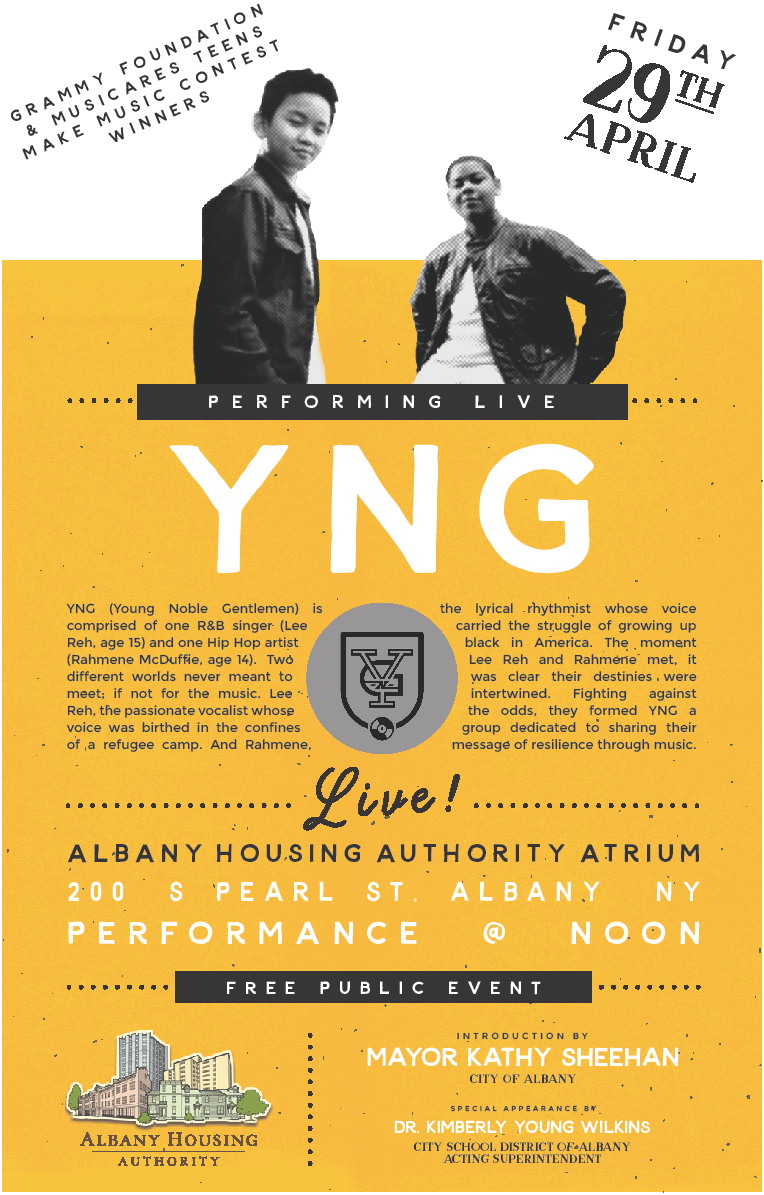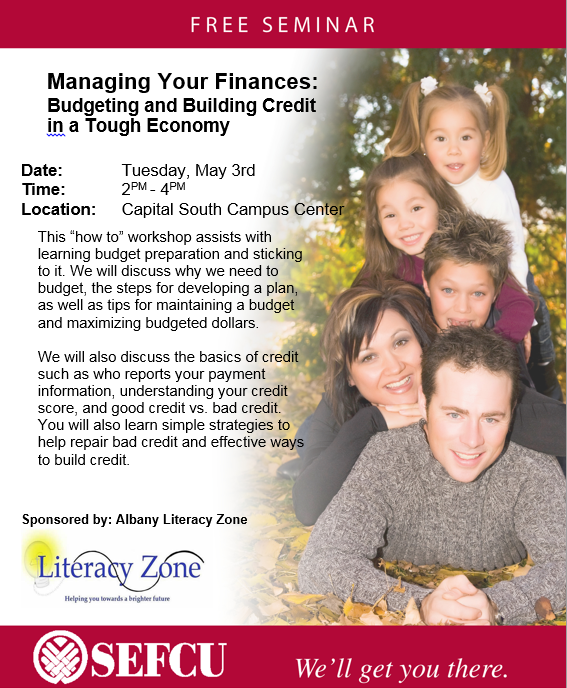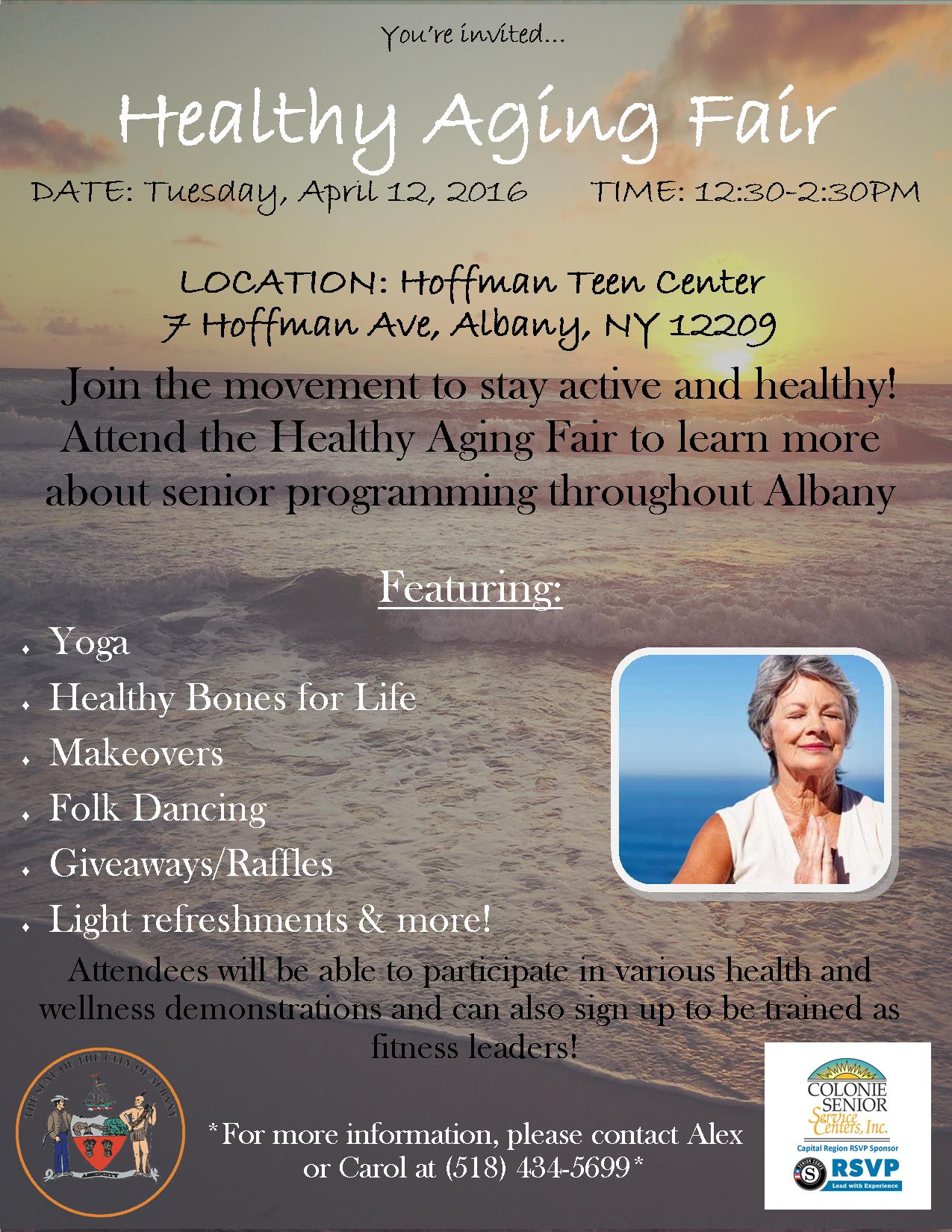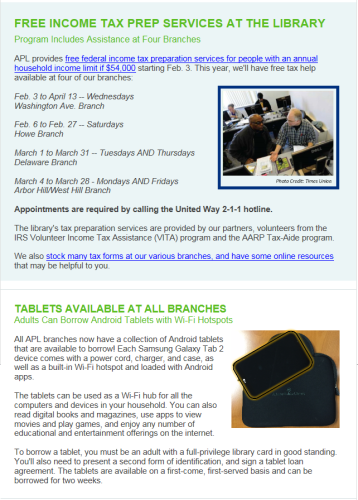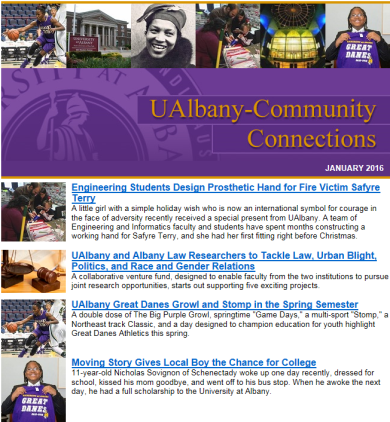The Schuyler Flatts Burial Ground Project was created to pay tribute to the discovered remains of 14 formerly enslaved Africans. Please join us on as we honor these souls and lay them to rest.
Friday, June 17, 12pm-8pm, Memorial Service
Schuyler Mansion State Historic Site, 32 Catherine Street, Albany
The public is invited to visit and pay their respects. Music and poetry honoring the deceased will take place on the grounds throughout the day.
Saturday, June 18, 11am-12pm, Burial Service
St. Agnes Cemetery, 48 Cemetery Ave. (off Broadway), Menands
The individuals will be transported to the cemetery and laid to rest. This interdenominational service will be presided over by local clergy and community leaders.
Schuyler Flatts Burial Ground Project
ACAP 50th Anniversary Block Party!
On May 19th, Albany Community Action Partnership (ACAP) kicked off a year-long celebration of the 50th Anniversary of their founding with a block party outside their headquarters on Sheridan Avenue.
Capital Woods Playground Clean-Up by Alpha Kappa Alpha Sorority, Inc.
On Saturday March 21, 2016, Alpha Kappa Alpha Sorority, Inc. local chapter, Delta Mu Omega (serving the Capital District for over 47 years), partnered with the Albany Housing Authority to restore, refresh and revitalize the playground at our Capital Woods property. We provided the tools and equipment, while they provided the labor! Saturday was 1908 Playground Mobilization Day for Alpha Kappa Alpha Sorority, Incorporated and its chapters all over the world. Alpha Kappa Alpha was founded in 1908 on the principles of “Service to All Mankind” and understands that helping children engage in play contributes to success in school and beyond. Therefore, from 2014 to 2018 the membership aims to Restore, Refresh and Revitalize 1,908 playgrounds around the world to ensure safe and fun places for children to play! (For more information about Alpha Kappa Alpha and the Delta Mu Omega Chapter, please visit www.akadeltamuomega.com)
Work Party with Lexington Avenue Workgroup a Success!
On May 19th, members of the Lexington Avenue Workgroup got their hands dirty for a good cause, beautifying a vacant lot after a recent demolition. AHA helps to facilitate the Lexington Avenue Workgroup, which is comprised of stakeholders who implement high-impact, easy to accomplish neighborhood improvement projects, while discussing longer term solutions to issues facing West Hill.
Major Public Art Project To Enhance Downtown Albany Gateway
Albany mural of bluebirds in flight to greet visitors – Times Union Article
MAYOR SHEEHAN WANTS TO KNOW: HOW’S YOUR INTERNET ACCESS, ALBANY?
MAYOR SHEEHAN WANTS TO KNOW: HOW’S YOUR INTERNET ACCESS, ALBANY?
City is conducting a public survey to evaluate Albany’s broadband options
ALBANY—Would you like to help Albany better understand the broadband landscape and figure out what Internet services are available, what Internet services are needed, and how they might be made fast and affordable to Albany businesses and residents?
Then fill out the online Broadband surveys for Albany residents and businesses!
“Public input from a wide variety of Internet users is essential if we’re going to fully understand Albany’s Broadband needs,” said Albany Mayor Kathy M. Sheehan. “This survey is an integral part of the feasibility study that will examine potential options of broadband service, keeping in mind the goal of bridging any digital divide that prevents businesses and residents from getting affordable and fast broadband access.”
Broadband refers to any high-speed Internet access that is always on for smart phones and computers and faster than traditional Internet service. Important info:
- Survey responses are needed by June 1st;
- The survey is one component of the Broadband Feasibility Study being conducted by the City’s technology consultant, Millennium Strategies;
- The survey will help Millennium Strategies design a plan for a better high-speed and affordable Broadband network for City residents.
###
2nd Annual Recipe for Success
Community Conversations on Implicit Bias
YNG (Young Noble Gentlemen) Perform at Albany Housing Authority!
Albany Housing Authority and the local community had a great time hosting the YNG (Young Noble Gentlemen) for a concert on Friday afternoon.
Performing a set of three songs, Lee Reh and Rahmene McDuffie took to the stage at noon after an introduction by City of Albany Mayor, Kathy Sheehan.
Great job and many congratulations go to YNG, your community is proud to support you!
Click HERE to see WNYT – News Channel 13’s coverage of the event!
Financial Literacy Workshop!
All are welcome to attend a free financial workshop with SEFCU at the Capital South Campus Center next Tuesday from 2-4pm!!
Snacks will be provided!
YNG (Young Noble Gentlemen) Concert at Albany Housing Authority!
YNGAlbany Housing Authority
Performing Live at the
Albany Housing Authority Atrium
200 S Pearl Street, Albany, NY
Performance is at Noon
YNG (Young Noble Gentlemen) is comprised of one R&B singer (Lee Reh, age 15) and one Hip Hop artist (Rahmene McDuffie, age 14). Two different worlds never meant to meet; if not for the music. Lee Reh, the passionate vocalist whose voice was birthed in the confines of a refugee camp. And Rahmene, the lyrical rhythmist whose voice carried the struggle of growing up black in America. The moment Lee Reh and Rahmene met, it was clear their destinies were intertwined. Fighting against the odds, they formed YNG a group dedicated to sharing their message of resilience through music.
Click the image above or HERE for a printable event flyer.
Community Job Fair at Swinburne Skating Rink
Presented by City of Albany’s Department of Youth and Workforce Services on Saturday, April 2nd, 2016 between 9:00 am – 12:00pm Clinton Avenue, NY 12205
Please click City of Albany Job Fair for more information
A Conversation with Congressman Tonko and the Alzheimer’s Association!
Want to get more from your doctor’s visit?
Albany Public Library – February 2016 Newsletter
UAlbany-Community Connections – January 2016 Edition
Culture, History and Laughter: An African American History Film and Discussion Series
Join us every Thursday starting on February 4 through March 3 at 5:30 PM
at the Albany Housing Authority, 200 South Pearl Street, Albany, NY
For additional information contact the CFLJ at 518.427.8361
Click the above image for a printable copy of our film schedule flyer!
